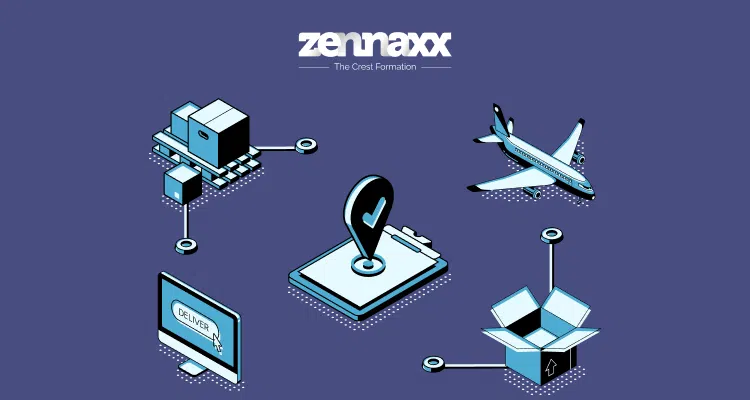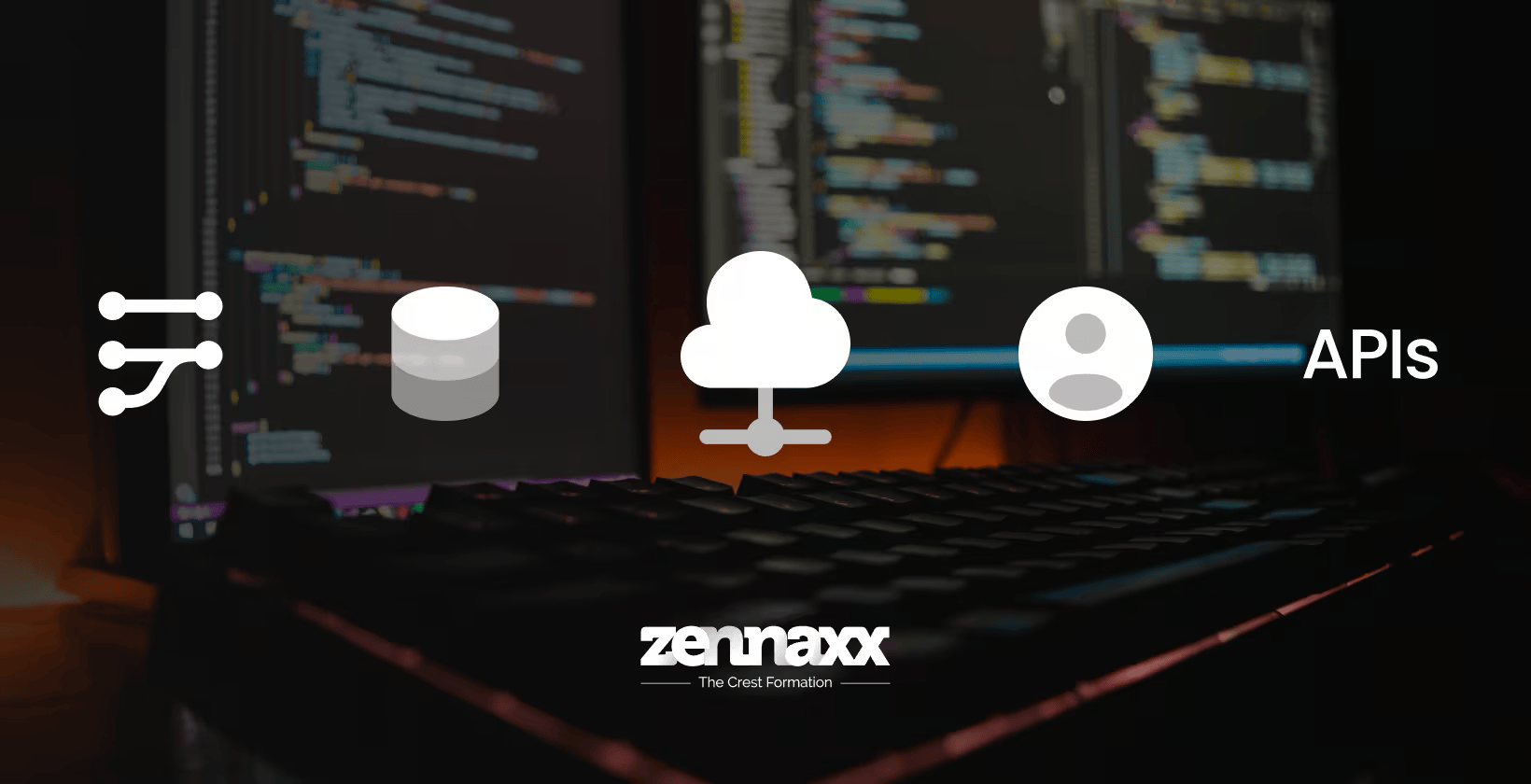In the fast-paced world of logistics and supply chain management, efficiency is key. So, companies are constantly looking for ways to streamline operations, reduce costs, and improve customer satisfaction.
One tool that has become indispensable in achieving these goals is the Transportation Management System (TMS).
A transportation management system is a powerful tool that enhances logistics and supply chain management. As you strive for greater efficiency in your transport operations, the importance of having an effective TMS solution cannot be overemphasized.
In this post, you will learn:
- The essential functions and features of a TMS.
- The importance of TMS in logistics and supply chain management.
- How to choose and implement the right TMS for your business.
Let’s dive in and explore how TMS can transform your logistics operations.

What is a Transportation Management System?
A transportation management system is a software solution that helps businesses manage their transportation operations more efficiently. It encompasses a range of processes, including planning, execution, and optimization of the physical movement of goods.
An effective TMS streamlines logistics by providing real-time visibility into the transportation process, automating various tasks, and improving communication with carriers. The system handles tasks such as route planning, freight auditing, and tracking shipments, ultimately saving time and reducing costs.
Whether you’re a small business or a large enterprise, using the right TMS can be a game-changer in your supply chain strategy.
Importance of TMS in Logistics and Supply Chain
A TMS plays a pivotal role in modern logistics and supply chain management. It acts as a central hub for coordinating all transportation activities, ensuring that goods move seamlessly from origin to destination. This system enhances overall supply chain efficiency by reducing transit times, optimizing routes, and minimizing disruptions.
1. Enhancing Efficiency
A TMS streamlines your operations, making your logistics more efficient. It reduces the manual workload by automating tasks such as route planning and freight auditing. This allows you to focus on other strategic aspects of your business.
2. Reducing Costs
Using a TMS can significantly lower transportation costs. By optimizing routes and managing carriers effectively, you minimize fuel consumption and reduce the risk of costly delays. The system also helps you identify cost-saving opportunities, such as consolidating shipments.
3. Improving Customer Satisfaction
Timely deliveries and real-time tracking enhance customer satisfaction. When customers know exactly where their orders are and when to expect them, it builds trust and reliability.
4. Better Coordination
The integration of a TMS with other supply chain systems, such as warehouse management systems (WMS) and enterprise resource planning (ERP) systems, ensures seamless data flow and enhanced collaboration. This holistic approach to supply chain management results in better coordination, increased customer satisfaction, and a stronger competitive edge.
5. Ensuring Compliance
A TMS helps you comply with transportation regulations. It keeps track of necessary documentation, monitors driver hours, and ensures that your shipments adhere to safety standards.
Planning to develop EHR software?
Contact us today and let our team of experienced professionals transform your vision into an innovative and user-friendly app that stands out in the market!
Why It’s Important to Have a Transportation Management System
Having a transportation management system is crucial for several reasons.
1. Operational Efficiency
A TMS enables you to manage and optimize your transportation operations with precision. And this can help you to reduce shipping costs, improve delivery times, and enhance operational efficiency.
2. Cost Savings
Through better route planning and load optimization, a TMS helps you save on fuel and other transportation costs. It also aids in negotiating better rates with carriers.
3. Improved Visibility
With real-time tracking, you gain complete visibility into your shipments. This allows you to monitor progress, anticipate issues, and communicate more effectively with customers and stakeholders.
4. Better Decision-Making
You can leverage the comprehensive data analytics and reporting capabilities of a TMS to analyze transportation data to identify trends, monitor key performance indicators (KPIs), and make informed decisions. This data-driven approach leads to continuous improvement and better strategic planning.
5. Security and Compliance
A TMS ensures compliance with regulatory requirements. With features like automated documentation and audit trails, you can easily adhere to industry regulations and avoid penalties. Also, a transport management system enhances security by tracking and monitoring shipments to reduce the risk of theft and loss.
Basically, a TMS empowers you to take control of your transportation processes, reduce costs, and improve service levels. It’s an indispensable tool for any business aiming to stay competitive in today’s dynamic market.
Who Uses a TMS?
A wide range of businesses and industries utilize transport management systems to streamline their transportation operations. Essentially, any company that relies on the transportation of goods can benefit from implementing a TMS.
1. Retail Industry
Retailers use TMS to manage their complex supply chains. It helps them ensure timely deliveries to stores and customers, manage returns, and optimize their distribution networks.
2. Manufacturing Industry
Manufacturers rely on TMS to coordinate the movement of raw materials to their factories and finished goods to their customers. It helps them maintain production schedules and reduce inventory costs.
3. Third-Party Logistics (3PL) Providers
3PL providers use TMS to manage logistics for their clients. It enables them to offer efficient, cost-effective transportation solutions and improve service levels.
4. E-Commerce Companies
E-commerce businesses use TMS to handle the high volume of shipments. It helps them manage last-mile delivery, provide accurate delivery estimates, and keep customers informed.
Changing Consumer Expectations
Consumer expectations are evolving rapidly, and businesses must adapt to stay competitive. Today’s consumers demand faster delivery times, real-time tracking, and exceptional service. This shift in expectations has made the role of a TMS even more critical.
With a TMS, you can meet these demands by optimizing your transportation operations. For example, real-time tracking features allow you to provide customers with up-to-date information about their shipments. This transparency builds trust and enhances the customer experience.
Moreover, a TMS helps you manage last-mile delivery more effectively. You can optimize routes, reduce delivery times, and ensure timely deliveries. By meeting consumer expectations, you can differentiate your business and build a loyal customer base.
Basically, a TMS enables you to keep pace with changing consumer expectations, providing the speed, transparency, and reliability that modern consumers demand.
Key Features of a Transportation Management System
A robust TMS comes equipped with several key features that enhance your transportation operations. Here are five essential features to look for in a TMS:
1. Route Optimization
This feature calculates the most efficient routes for your shipments, taking into account factors such as distance, traffic, and delivery windows. By optimizing routes, you can reduce transit times and fuel costs.
2. Freight Audit and Payment
A TMS automates the auditing of freight bills, ensuring that you only pay for services rendered. It also manages payments to carriers, streamlining the financial aspect of transportation.
3. Real-Time Tracking and Visibility
With real-time tracking and visibility, both your team and your customers can monitor shipments in real time. This feature provides live updates on the status and location of shipments. And it enables proactive management of any issues that may arise during transit.
4. Carrier Management
A TMS helps you manage relationships with multiple carriers. The system facilitates carrier selection, rate negotiations, and performance evaluations. This ensures that you choose the best carrier for each shipment.
5. Analytics and Reporting
Advanced analytics and reporting tools provide insights into transportation performance. With this feature, you can track key metrics, identify trends, and make data-driven decisions to improve efficiency.
Want to Automate Your Business Process With a Software Solution?
Zennaxx, a leading software development firm in Canada, has delivered 700+ bespoke solutions spanning various industries.
Utilizing TMS in Small Businesses
Even small businesses can benefit significantly from using a transportation management system. By leveraging a TMS, you can streamline your transportation operations, reduce costs, and improve service quality.
1. Execution
A transport management system helps small businesses automate and manage many manual processes, from order creation to delivery. This automation saves time and reduces the risk of errors, allowing you to focus on other aspects of your business.
This is particularly important for small businesses with limited budgets, as every dollar saved contributes to the bottom line.
2. Optimization
Optimization is another key area where a TMS can benefit small businesses. With features like route optimization and carrier management, you can select the most efficient routes and carriers for your shipments. This not only reduces transportation costs but also improves delivery times and service levels.
In essence, a TMS empowers small businesses to manage their transportation operations more efficiently, leading to cost savings and improved customer satisfaction.
Benefits of Using a Transportation Management System
Implementing a transportation management system provides many benefits to your organization. Here are five key advantages of using a TMS:
- Cost Savings: By optimizing routes and improving carrier selection, a TMS helps you reduce transportation costs significantly. Also, the system reduces labor expenses by automating manual tasks.
- Improved Customer Service: Real-time tracking and visibility features enable you to provide accurate updates to your customers, enhancing their experience.
- Enhanced Efficiency: Automation of transportation processes saves time and reduces the risk of errors. And TMS streamlines your transportation operations, thereby reducing transit times and minimizing delays. This leads to faster deliveries and improved supply chain performance.
- Better Compliance and Risk Management: A TMS ensures compliance with regulatory requirements and provides features like automated documentation and audit trails.
- Data-Driven Decision Making: Access to detailed analytics and reports allows you to make informed decisions and continuously improve your transportation operations.
These benefits make a TMS an indispensable tool for businesses looking to optimize their logistics operations and achieve strategic goals.
Types of Transportation Management Systems
There are several types of transportation management systems available. Each type of TMS has its own advantages and disadvantages. Understanding the different types of TMS can help you choose the right solution for your business.
1. On-Premise TMS
An on-premise TMS is installed and hosted on your company’s servers. This type of TMS offers greater control and customization options. However, it requires significant upfront investment and ongoing maintenance. On-premise TMS solutions are best suited for large organizations with specific needs and robust IT infrastructure.
2. Cloud-Based TMS
A cloud-based TMS is hosted on the vendor’s servers and accessed via the internet. This type of TMS offers several advantages, including lower upfront costs, scalability, and ease of implementation.
Also, cloud-based TMS solutions are regularly updated by the vendor, so you’ll have access to the latest features.
Small to medium-sized businesses can benefit greatly from cloud-based TMS due to its flexibility and cost-effectiveness.
3. Integrated TMS Solutions
Integrated TMS solutions combine transportation management with other supply chain systems, such as warehouse management systems and enterprise resource planning systems.
Integration facilitates seamless data flow and improves collaboration within your organization, leading to improved efficiency. Integrated TMS solutions are ideal for businesses looking to create a holistic approach to supply chain management.
The Advantages of a TMS in the Cloud
A cloud-based transportation management system offers several distinct advantages.
Firstly, it provides scalability, allowing you to easily expand your operations as your business grows. You can add new users, locations, and functionalities without significant investments in IT infrastructure.
Secondly, a cloud-based TMS ensures accessibility. You can access the system from anywhere with an internet connection, enabling remote work and collaboration. This flexibility is particularly beneficial in today’s dynamic business environment.
Finally, cloud-based TMS solutions are typically more cost-effective. With a subscription-based pricing model, you can avoid large upfront costs and only pay for the features you use. Also, cloud-based systems are updated automatically, ensuring that you always have access to the latest features and security enhancements.
How to Choose the Right Transportation Management System
Selecting the right transportation management system for your business involves several critical steps. Here’s a step-by-step guide to help you make an informed decision:
- Identify Your Needs: Start by evaluating your current transportation processes and identifying areas for improvement. You should consider factors such as shipment volume, delivery requirements, and specific challenges. This analysis will help you determine the features and capabilities you need in a TMS.
- Set a Budget: Determine your budget for the TMS, including implementation and ongoing costs, such as maintenance and subscription fees. It’s important to consider both upfront and long-term expenses to ensure you choose a solution that fits your financial constraints.
- Evaluate Vendors: Research TMS vendors and their offerings. Look for vendors with a proven track record, positive customer reviews, and robust support services.
- Request Demos: Request demos from shortlisted vendors to see their systems in action. This will give you a better understanding of the user interface, functionality, and ease of use.
- Consider Integration: Ensure that the TMS can integrate seamlessly with your existing systems, such as ERP and WMS. This will enable smooth data flow and enhance operational efficiency.
- Check Scalability: Choose a TMS that can scale with your business. As your transportation needs grow, the system should be able to accommodate increased shipment volumes and additional features.
TMS Implementation and Best Practices
Implementing a TMS involves several key steps and best practices. Let’s consider some steps you should take to ensure a successful implementation:
- Plan Thoroughly: Develop a detailed implementation plan, outlining the scope, timeline, and resources required. To ensure a successful implementation, you can assign a project manager to oversee the process.
- Gather Requirements: Work with your team to gather detailed requirements for the TMS. This includes understanding current processes, identifying pain points, and defining success criteria.
- Configure the System: Configure the TMS to match your specific requirements. This may involve setting up custom workflows, integrating with other systems, and importing data.
- Train Your Team: Provide comprehensive training for your team to ensure they understand how to use the transport management system effectively. This will help maximize the system’s benefits and reduce the learning curve.
- Test Extensively: Conduct thorough testing to ensure the TMS functions as expected. This includes testing integrations, workflows, and reporting capabilities to identify and resolve any issues before full deployment.
- Address Challenges: Be prepared to address common challenges, such as data migration issues and resistance to change. You can address some of these obstacles by involving key stakeholders in the implementation process and maintaining open communication.
Building Custom TMS Solutions
While off-the-shelf TMS solutions offer many benefits, sometimes a custom-built TMS is necessary to meet your unique business needs. Custom transport management systems are tailored to your specific requirements with features that align perfectly with your operations.
Custom solutions often provide a higher level of flexibility and scalability compared to standard TMS products. They can adapt as your business evolves, ensuring that your transportation management capabilities grow with your company.
However, building a custom TMS requires significant investment in terms of time, resources, and expertise. It’s important to work with experienced transport management software developers and consultants who understand your industry and business requirements.
The TMS software development process starts with a thorough needs assessment to identify the unique challenges and opportunities within your transportation operations. From there, developers create a system that integrates seamlessly with your existing infrastructure and addresses your specific pain points.
The Future of TMS
The future of transportation management systems is being shaped by several emerging technologies and trends. Here are some future trends and innovations to watch:
- IoT Fleet Monitoring: The Internet of Things (IoT) enables real-time monitoring of vehicles and shipments through connected devices. IoT sensors can track parameters such as temperature, humidity, and location, providing valuable data to optimize fleet management.
- Digital Assistants: AI-powered digital assistants can help manage transportation tasks, such as scheduling, tracking, and communication with carriers. These assistants use natural language processing to interact with users and automate routine activities.
- Adaptive Intelligence and Machine Learning: These technologies analyze vast amounts of data to identify patterns and make predictions. In TMS, adaptive intelligence and machine learning can optimize routes, forecast demand, and enhance decision-making.
- Blockchain: Blockchain technology offers secure, transparent, and immutable records of transactions. In the context of TMS, blockchain can enhance visibility, traceability, and security in the supply chain.
- Cold Chain Management: The cold chain involves transporting temperature-sensitive products, such as pharmaceuticals and perishable foods. Advanced TMS solutions are incorporating cold chain management features to ensure these products are kept at the appropriate temperatures throughout transit.
Conclusion
Whether you want to implement an off-the-shelf solution or build a custom TMS, using the right TMS software can help to optimize your transportation operations, reduce costs, and enhance customer satisfaction. And you can leverage emerging technologies such as IoT, AI, and blockchain in your TMS to drive innovation and growth in your organization.
To ensure the successful implementation of a TMS tailored to your business needs, reach out to Zennaxx. We specialize in implementing TMS solutions or building custom TMS solutions that drive operational efficiency and revenue growth. Contact us today to get started on optimizing your transportation management.


